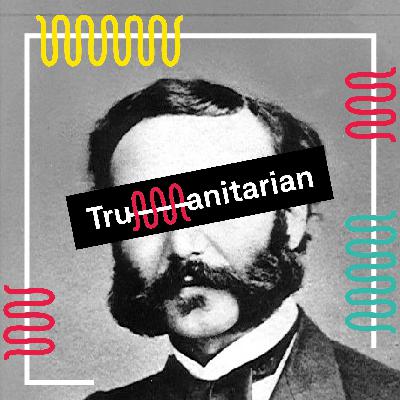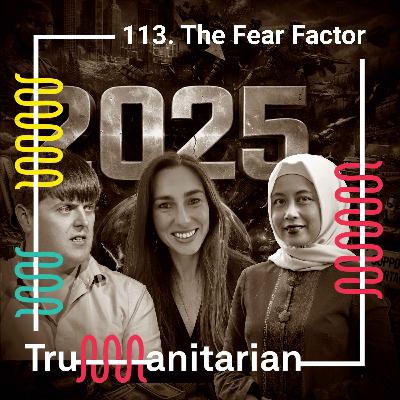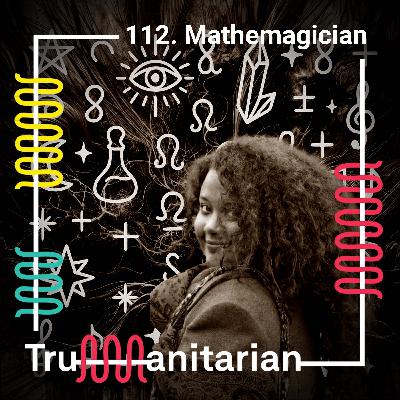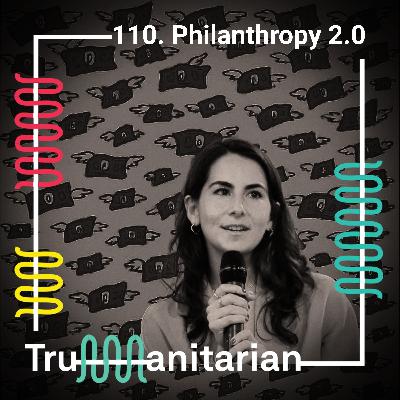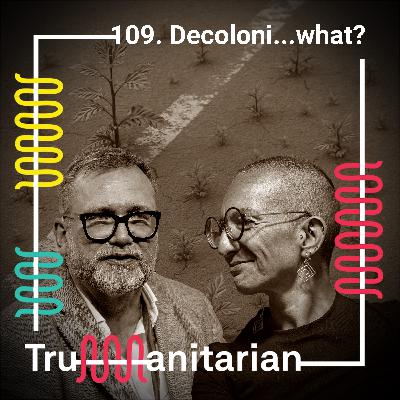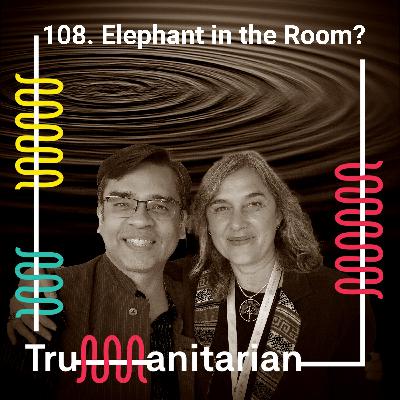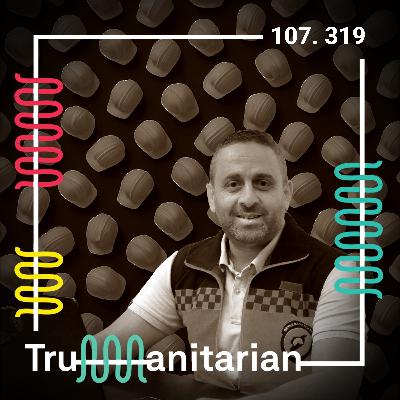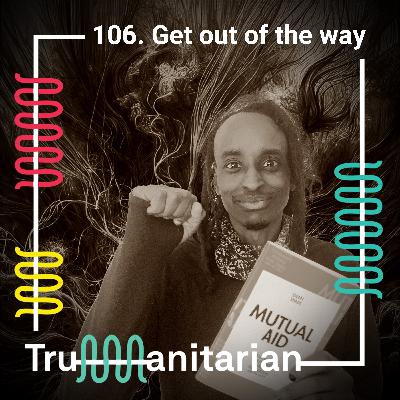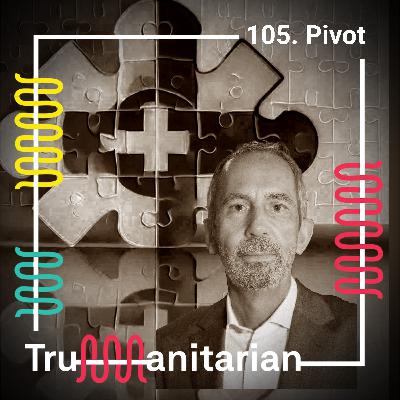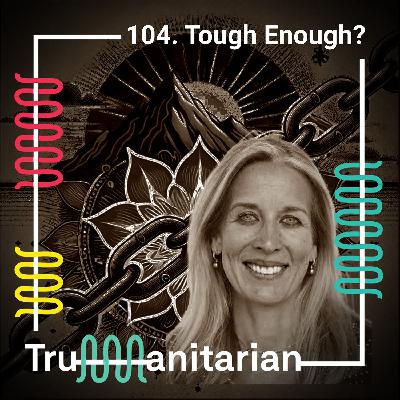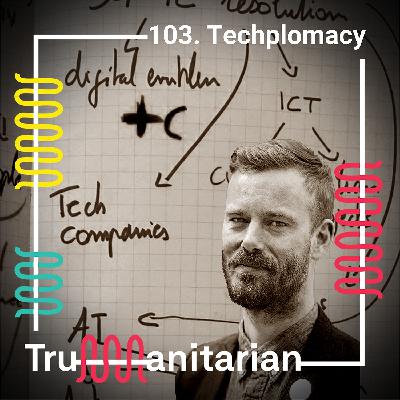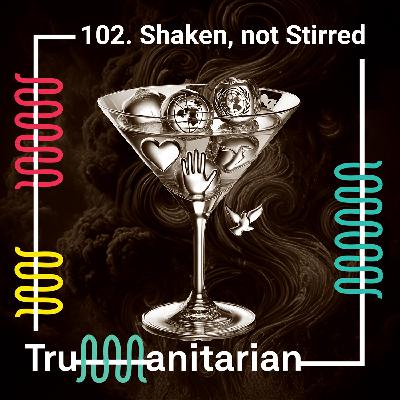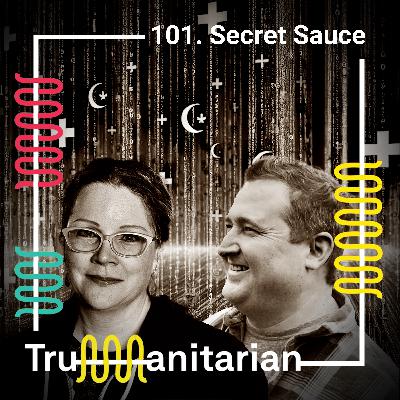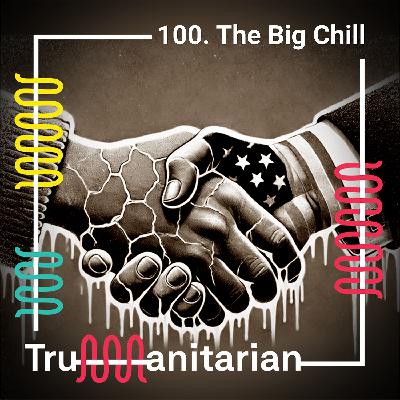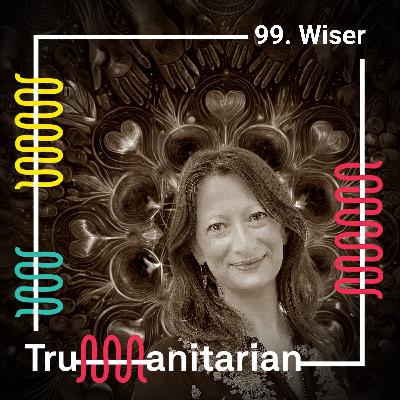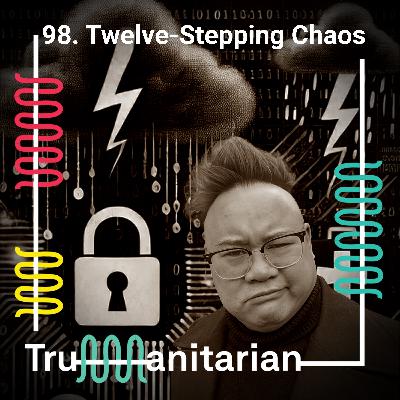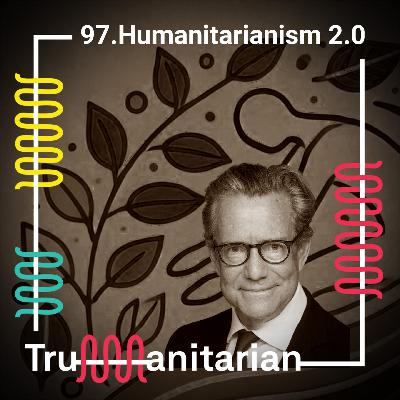Discover Trumanitarian
Trumanitarian

126 Episodes
Reverse
Humanitarians say that they will base their interventions on needs. But how do you define needs? And how do standards and methodologies influence the way we think about humanitarian action?These are some of issues Joël Glasman and Lars Peter Nissen unpack in this episode. Joël is a historian and has written the book Humanitarianism and the Quantification of Human Needs: Minimal Humanity.
The humanitarian sector is famous for its inability to change. In the first season of Trumanitarian Lars Peter Nissen sits down with 20 different humanitarian voices to explore the current and emergent humanitarian sector.
Music by Sibo
Support this podcast
This weeks guest is Gareth Owen OBE — Former Humanitarian Director at Save the Children UK (2007-2024). Gareth spent over three decades in the humanitarian sector, beginning his career in Somalia in 1993. He co-founded the START Network and served as Chair of the Humanitarian Leadership Academy. Awarded an OBE in 2013 for services to emergency crisis response abroad and holds an honorary doctorate from the University of Bath.The End of an Era The conversation explores what Gareth calls the "post-industrial phase" of humanitarianism—a sector that expanded dramatically in the first decades of the 21st century (peaking at $43 billion in 2022) and is now in managed decline. The discussion traces how the business model of big INGOs began failing years before the 2025 funding crisis, with the UK aid budget cuts from 0.7% to 0.3% forcing organizations to retool their approaches.Loss of the Humanitarian Soul A central theme is the perceived loss of what Gareth calls the "humanitarian soul"—the culture, spirit, and sense of something essential being enacted in a courageous and ethical way. External trauma psychologists visiting Save the Children asked "where's the humanitarian soul?" in corporate headquarters, highlighting how institutional survival has often displaced the cause itself.First We Lost Our Soul, Then We Lost the Money The conversation challenges the narrative that 2025's funding cuts created the crisis. Instead, it argues that institutional drift, creeping managerialism, and the "tyranny of being busy" had already hollowed out the sector's capacity for deep thought, debate, and disagreement long before the financial reckoning.Being Human in the Age of AI Referencing the World Economic Forum's Future of Jobs Report 2025, Gareth notes that more than half of the top 10 core skills needed for the future are about humanness: resilience, flexibility, leadership, creative thinking, empathy, active listening, and curiosity. In a world dominated by AI, "humans are going to have to be brilliant at being human again."Gareth Owen on DevexPrevious Trumanitarian episode with Gareth (Episode 51 - "Panopticon")Substack: The Humanitarian ApeBooks by Gareth OwenWhen the Music's Over: Intervention, Aid and Somalia(2022) —Repeater BooksUnhealed Wounds: Trauma, Aid and Angola— forthcoming (28 March 2025)Chapter inAmidst the Debris: Humanitarianism and the End of Liberal OrderTopics DiscussedThe Humanitarian Society— A new alumni-style gathering space for sense-making about the state of humanitarianism, launching in early 2025span...
As 2025 draws to a close, Trumanitarian host Lars Peter Nissen invites Meg Sattler, Adelina Kamal, and Thomas Byrnes to the Trumanitarian studio to reckon with a year that seems to have defied comprehension.The numbers tell one story: humanitarian funding has collapsed to 2016 levels, projected below $22.7 billion. This isn't a funding cycle dip but the structural unwinding of the post-Cold War peace dividend. As Western governments pivot from solidarity back to defence spending, a system built over decades is contracting in months—while the UN's humanitarian reset unfolds behind closed doors without clarity on what we're actually resetting toward.Yet within this contraction, something else stirs. Are local and resistance humanitarians – mutual aid - becoming the centre of gravity the system always claimed they should be? As the roof blows off the humanitarian house, do we patch a corner or rebuild entirely?
Wigdan Seedahmed joins host Lars Peter Nissen for a conversation that drifts between code and Sudanese music, and into the quiet art of translating magic into data - without letting magic slip.Wigdan is not on autopilot. In a sector often dominated by compliance and performative intellect, she carries a rare kind of mind - one that doesn’t just react or repackage, but thinks. Her intelligence is quiet, original, and layered - the kind that allows her to interact within the wild, magical, messy reality without flattening it or abstracting herself from it. We talk about how she uses music as a dataset. How the hum of old Sudanese voices carries a politics that spreadsheets can’t capture. And how data, when reclaimed from its colonial grammar, can become a language of intimacy, resistance, and radical imagination.It’s about paying attention and letting different kinds of intelligence – logical, intuitive, ancestral – speak. Wigdan calls herself a Mathemagician. After listening, you’ll understand why.Wigdans Substack post on Sudans Sonic Archive: Wigdans Zanig playlist for Trumanitarian:
What is the role of cash distributions in the humanitarian reset? That is the question that Cate Turton, the Director of the Cash Learning Partnership (CALP) Network), Yolande Wright, the VP for Partnerships at GiveDirectly and Alessandro Bini the Director of the Somali Cash Consortium discuss with Lars Peter Nissen in this weeks episode.The conversation focuses on the current state and future potential of cash-based humanitarian assistance. The participants discusses the barriers and opportunities for further leveraging cash distributions in the humanitarian sector, particularly in light of the current resource constraints. Key topics included the evidence base for cash, the need to shift power and decision-making to affected populations, the challenges of integrating cash within the existing humanitarian coordination structures, and the role of localization in cash programming.Explore key insights from a high-level conversation on the future of humanitarian cash assistance. Learn about systemic barriers, localization, UN roles, and innovative cash delivery methods like lump-sum transfers.
What happens when a philanthropist shows up differently? In this episode, Maya Ghosh Bichara joins host Lars Peter Nissen to reflect on what it means to fund, partner, and build trust with integrity.Maya isn’t running a billion-dollar foundation - she gives small but catalytic grants, drawing on her experience from the Chan Zuckerberg Initiative to reimagine what money can do.They explore trust-based philanthropy, the need for humility, and how to move beyond extractive funding models. What would it take to let go of control, trust leaders on the ground, and how could we try to decolonize funding flows?Mayas biggest advice for change is to start implementing it yourself. This episode is a must for anyone curious about what a new generation of philanthropy might look like.
In this special crossover episode, Lars Peter Nissen (Trumanitarian) and Carla Vitantonio (Living Decoloniality) sit down in Doha to explore the deep fault lines in humanitarian work — and why they’ve both turned to podcasting as a space for honest conversation.Carla unpacks the concept of decoloniality — the lingering structures, mindsets, and behaviors that survive long after formal colonialism ends. Together, they explore how power, bureaucracy, and hero narratives shape the humanitarian sector — and why we’re so often stuck tweaking language while avoiding the hard work of dismantling systems.They discuss the limits of reform, the danger of dressing failure as progress, and the need for new actors, voices, and institutional diversity. And they ask the question: If the big institutions can’t change, who can?These discussions extends too to podcasting and humanitarian events; how different formats, structure and diversity of people could create different reflections and outcomes. This is an episode about inquiry over certainty, and humility and small acts over heroism. Notes and Links: • The theory referred to in Carlas podcast: the theory of the colonial matrix of power by Aníbal Quijano• Living Decoloniality (Carlas podcast). The highlighted episodes: Episode with Michelle Lokot; Episode with Karishma Shafi; Episode with Themrise Khan • Trumanitarian episodes highlighted in the convo: Episode with Dr. Rola Hallam; Ukraine episode with Care SG); Episode with Themrise Khan
In this episode of Trumanitarian, recorded on the sidelines of the Center for Humanitarian Leadership Conference in Doha, host Lars Peter Nissen sits down with two sector heavyweights: Sofía Sprechmann, former Secretary General of CARE International, and Amitabh Behar, Executive Director of Oxfam International. Together, they confront some of the humanitarian sector’s most uncomfortable truths.The aid sector is full of elephants—entrenched power dynamics, outdated models of partnership, performative reform, and organizations that may simply be too big to change. This conversation takes those challenges head by examining the Pledge for Change, a joint commitment by major INGOs to decolonize aid through equitable partnerships, ethical storytelling, and systemic transformation.But the discussion also goes deeper—into the contradictions of leading large organizations while trying to dismantle the very systems that sustain them.
On December 8, Syria saw a major turning point: the fall of the Assad regime and the emergence of a new government. For the White Helmets, this moment opened the door to expand operations from 800 to over 4,600 communities—nationwide.In this episode, the White Helmet’s Chief of Programs, Ahmed Ekzayez, shares how the group has evolved from frontline rescue to tackling climate change, protecting human rights, and strengthening civil society, all while fending off disinformation and facing the USAID funding cuts.For Ahmed, success isn’t measured by project metrics—but by lives changed: “This isn’t a 9-to-5 job. This is our country.”
The Emergency Response Rooms in Sudan have, over the past couple of years, become the backbone of humanitarian action in Sudan. As community-based informal organizations, the ERRs provide mutual aid to more than 2 million people in Sudan.In this week's episode Hajooj Kuka and Justin Corbett discuss the work of the ERRs with co-hosts Mabala Nyalugwe and Lars Peter Nissen.
We are at a pivotal moment for the humanitarian sector. The freeze of US foreign aid, the dismantling of USAID and aid cuts from a number of the major donors has sent shockwaves through the system.But how do we move forward and strike the balance between ensuring continuity of lifesaving humanitarian assistance while addressing serious and well-known issues with the existing humanitarian system – do we opt for reform or disruption?Dominik Stillhart is the the Head of the Swiss Humanitarian Aid Unit and the Deputy Director of Swiss Development Cooperation and in this conversation with Lars Peter Nissen he speak directly to the need for changing the way we do business and finding a new way to work. The conversation was recorded on the last day of the 2025 Humanitarian Networks and Partnerships Week (HNPW) in Geneva and the sprawling ecosystem of actors at the conference serves as the point of departure for the conversation.You can support Trumanitarian financially through a one-off or a monthly contribution on our website.
Happy international women’s day ! When women connect across generations and experiences, heart to heart, incredible things happen.In this special episode, Maeva Fages joins Rigmor Tholstrup for a heartfelt conversation about humanitarianism, yoga and resilience. Maeva, a humanitarian health specialist, yoga teacher, and Senior Country Manager for Afghanistan and Syria, shares experiences on leading with softness and finding strength in vulnerability.They discuss the pressures to “toughen up” in professional settings, the unspoken impacts of such expectations, and how our bodies often hold truths our minds resist. Maeva reveals how yoga became her path to reclaiming an authentic way of leading and being in the world.As two privileged women, they want to acknowledge the privilege of even being able to have such a conversation. On this day, all women worldwide should be honored: those who have protested, spoken out, and fought for collective rights; those achieving remarkable things and making a difference; those simply existing amidst challenges; and those enduring oppression under oppressive systems and capitalism.This episode is about unlearning, reconnecting with what seems real, and celebrating the women - before us, beside us, and after us - who make it all possible.When women connect, things change.
The ethos of 'move fast and break things' doesn't work for humanitarians. If we break things, we break people. But technology is changing the nature of conflict. International Humanitarian Law cannot evolve to meet these challenges without input from the private tech actors shaping the battlefield. This week's guest, Philippe Stoll, Senior Techplomacy Delegate at the ICRC, works to connect humanitarians to tech entrepreneurs and other relevant minds over the dilemmas presented by new technologies in conflict.From biometric systems to the ethical risks of data misuse, Philippe shares how the ICRC is developing cautious, problem-driven tech policies aimed at protecting vulnerable populations. He also discusses his obsession with giving concrete meaning to abstract ideas and how immersive “Digital Dilemmas” installations can help tech developers and humanitarians understand each other's worlds. Questions about how to handle tech in conflict zones aren't going anywhere. For anyone interested in the future of humanitarianism, this conversation is essential.
In this episode, Tamam Aloudat and Richard Blewett join Lars Peter Nissen to ask the hard questions: What’s worth saving? What needs to go? Who gets to decide? ...And are we the right guys to discuss this?Tammam argues that tinkering with the system isn’t enough - we need a “non-reformist reform,” a radical reimagining of what humanitarianism even is. Richard reflects on decades of failing attempts to change from the inside and whether this crisis is the moment to go back to the basics of principled humanitarian action, led by local actors, cutting the expensive middlemen. They wrap up by tackling the question: What is each of us going to do differently in the next few months?As the sector scrambles, priorities are being set. The decisions being made right now will define the future of humanitarianism. So what comes next? Who will (and should) take the lead?Listen in. The system is shaking. Let's make sure it doesn’t just settle back into place.
Humanitarian tech initiatives fail when they start with a "shiny object" rather than a defined problem. Solutions are imposed rather than developed based on actual needs. A ‘graveyard of bad tech’ is expanding. Should humanitarians just admit they’re bad with technology? During the International Red Cross Movement Conference in Geneva in October 2024, Host Lars Peter Nissen found a quiet corner to discuss pitfalls and opportunities in humanitarian tech with Heather Leson (Digital Innovation Lead at the International Federation of Red Cross and Red Crescent Societies) and Omar Abou Samra (Director of the Global Disaster Preparedness Center at the American Red Cross). Heather and Omar believe in technology’s usefulness to the industry, but stress that it must be integrated into humanitarian work with the same rigor applied to non-digital interventions.This conversation is a call for better co-design between humanitarians and technologists to ensure impact measurement goes beyond vanity metrics like downloads. Heather and Omar pitch an approach similar to venture capital, where ineffective projects are shut down rather than endlessly sustained, and where human-centered design and cross-disciplinary collaboration are embraced. They discuss the secret sauce for better humanitarian tech, and that maybe it's time humanitarians to rethink their role—not as central actors, but as collaborators in a larger system.
Over the past week, the 90-day freeze of US foreign assistance has sent a shockwave through the humanitarian and development communities.If you ask this weeks guests on Trumanitarian the crisis will not be over in three months - Harpinder Collacott, Michael Barnett, and Meg Sattler come to the conclusion that the consequences of the aid freeze will last for years. The real question is: as the old system fractures, what new models of humanitarian action will emerge?Meanwhile, communities are not idly waiting for external interventions. Can aid evolve to truly support them in building stronger institutions that can withstand the shocks to come?No grand narratives. No easy solutions. Listen in for a clear-eyed, smart and honest perspective on the disruption of the humanitarian sector.
Dr. Rola Hallam - a doctor, humanitarian, and Syrian advocate - joins host Lars Peter Nissen for a personal conversation on the resilience of humanity amidst chaos. Against the backdrop of Syria’s profound suffering and the fall of the Assad regime, Dr. Rola shares her journey of healing, hope, and service.She dismantles the idea of the untouchable hero humanitarian, laying bare the fragility and vulnerability of frontline workers. She recounts her burnout and her path to rebuilding through healing, spirituality, and psychedelics - moving from clever to wise.Dr. Rola envisions a healing-centred approach for Syria (and beyond), one that empowers its people to dream and rebuild. And she calls for all of us to help make such futures realities. It's about embodying the change we want to see. Listen in – its deeply vulnerable and we hope you will love it as much as we do.
What happens when you mix cyber warfare, climate collapse, and humanitarian action with a dash of whiskey? You get Emerson Tan - a man who started as a hacker, turned humanitarian, and now designs fintech for the apocalypse.Dive into chaos: how disasters, misinformation, and the climate crisis are forcing us to rethink everything from technology to social systems. Emerson explains why the difference between a war zone and a flood is six feet of water and how mutual aid and grassroots are bubbling up as antidotes to our crumbling centralised structures.Along the way, we explore the dark and occasionally hopeful lessons learned from decades of edge-case disasters. What can the humanitarian sector learn from Bellingcat or AA meetings? Lots, Emerson thinks.Grab a whiskey and join us for a convo that’s terrifying, fascinating, and oddly uplifting.Listen now. Share widely. Embrace the chaos. Brace yourself for our dear friend, Emerson, just don’t expect him to sugarcoat the challenges ahead.
In an early episode this year, Dr. Hugo Slim warned that he would challenge the most fundamental humanitarian principle: humanity. This week, he does just that. As a Senior Research Fellow at Oxford and a policy advisor specializing in the ethics of war and humanitarian aid, Hugo brings a unique philosophical lens to the conversation, drawing on his doctorate in theology.In this conversation, host Lars Peter challenges Hugo to assess the practicality and effectiveness of his landscape-based approach. Could it disrupt the established Western liberal framework of human rights—and might that disruption be exactly what we need to confront impending climate-related humanitarian crises?Thoughts? Guest suggestions? Email us at trumanitarianpod@gmail.com


